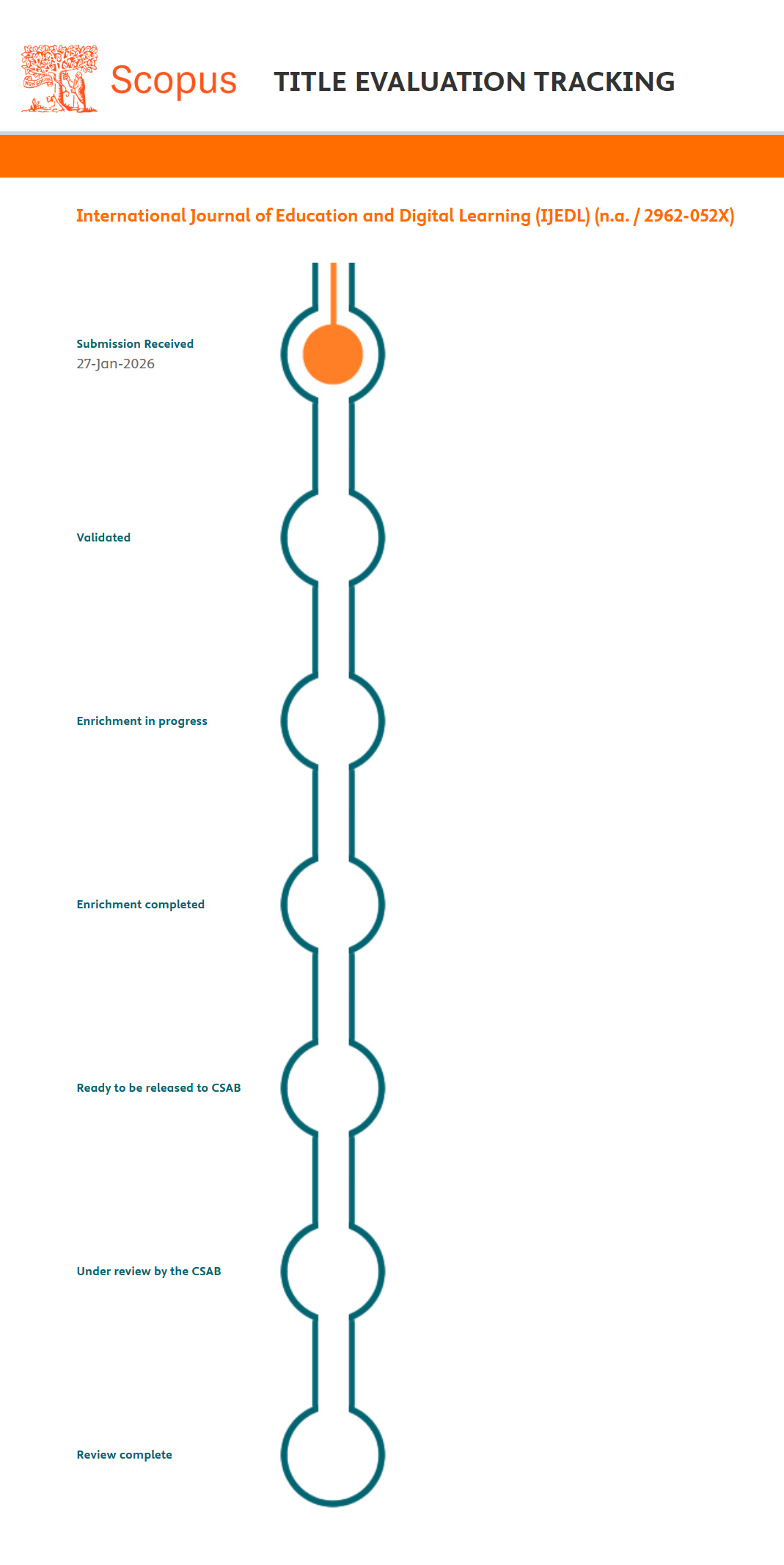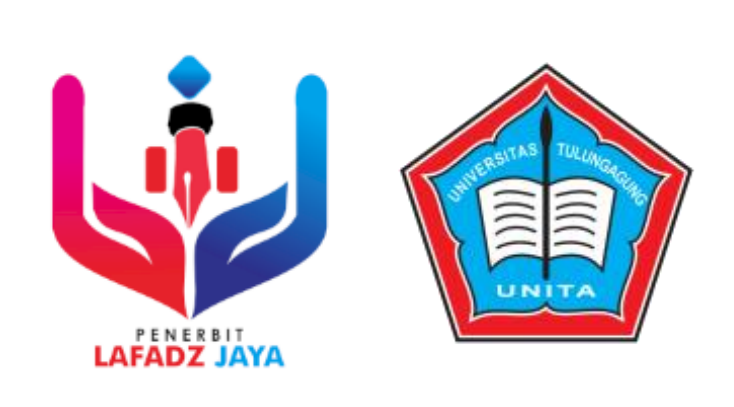Digital Transformation of Primary Education in Saudi Arabian Schools: Trends and Impacts
DOI:
https://doi.org/10.47353/ijedl.v2i2.270Keywords:
Digital Education, Primary Schools, Digital Transformation, Educational TechnologyAbstract
The digitalization of education has become an essential component of the modern educational system, particularly in Saudi Arabia, where the government has invested significantly in technological advancement within its schools. This study aims to analyze the ongoing digitalization efforts in primary education in Saudi Arabia, focusing on the trends, impacts, and effectiveness of technology on teaching and learning processes. By reviewing current policies, analyzing the integration of digital tools in classrooms, and examining the experiences of teachers and students, this article presents a comprehensive understanding of how digital education is being implemented in the Kingdom. The study also explores the implications of digital tools on student engagement, learning outcomes, and overall educational quality. The findings suggest that while progress has been made, further investment in professional development and infrastructure is crucial to ensure the sustainability of digital education in primary schools. The paper concludes with recommendations for policy development and strategic planning to enhance the digitalization of education in Saudi Arabia.
Downloads
References
Al-Fadhli, S. (2019). The role of learning management systems in enhancing the teaching-learning process in Saudi Arabia. Journal of Educational Technology & Society, 22(4), 58-71.
Al-Farsi, S. (2020). The role of digital tools in facilitating personalized learning in Saudi Arabia. International Journal of Education and Development using ICT, 16(3), 1-16.
Al-Harbi, A. (2020). The impact of digital tools on student engagement in Saudi Arabia. International Journal of Educational Research, 45(2), 112-123.
Al-Hassan, A., & Al-Tamimi, R. (2021). Digital education in Saudi Arabia: Opportunities and barriers in primary schools. Education and Information Technologies, 26(2), 1393-1410.
Al-Johani, H. (2020). Collaborative learning using digital tools: A case study from Saudi primary schools. Educational Technology Research and Development, 68(6), 2657-2672.
Al-Khalifa, H. (2019). Teacher professional development for digital education in Saudi Arabia: A review. Journal of Teacher Education for Sustainability, 21(2), 73-84.
Al-Khateri, M. (2020). Challenges in the integration of digital education in Saudi schools. Computers & Education, 147, 103786.
Al-Mashaqbah, S. (2020). The digitalization of education in Saudi Arabia: Current trends and future directions. Educational Technology & Society, 23(3), 15-25.
Al-Motiri, A., Al-Shehri, A., & Al-Dosari, R. (2021). Teachers' readiness for digital education in Saudi primary schools. Journal of Educational Computing Research, 58(5), 1249-1267.
Al-Mutairi, M., Haseeb, M., & Rahman, Z. (2020). The role of digital tools in improving learning outcomes in Saudi Arabia. Education and Information Technologies, 25(1), 115-134.
Al-Qarni, T., & Al-Humaidan, M. (2021). The digital divide in Saudi education: Challenges and opportunities. International Journal of Educational Technology in Higher Education, 18(1), 27-42.
Al-Saleh, F., & Al-Bassam, S. (2023). The impact of digital transformation on academic performance in Saudi primary schools. Saudi Journal of Education and Development, 10(4), 212-228.
Al-Shehri, A., & Al-Khalifa, H. (2019). Bridging the gap in digital education: Policy recommendations for Saudi schools. Journal of Educational Policy Studies, 32(3), 48-61.
Al-Shammari, H., & Sulaiman, M. (2021). E-learning in Saudi Arabia: A critical review of digital education in primary schools. Educational Research Review, 16(1), 67-82.
Al-Turki, R., & Al-Dosari, N. (2018). Digital education and teacher professional development in Saudi Arabia. Education and Information Technologies, 23(3), 967-983.
Anderson, C. A. (2018). Learning management systems: A comprehensive review. Journal of Online Learning and Teaching, 14(3), 244-258.
Becta. (2009). The impact of digital technology on teaching and learning in schools. Becta Research Report.
Cope, B., & Kalantzis, M. (2015). New media, new learning: The digital age and educational theory. Cambridge University Press.
Crook, C., & Harrison, C. (2017). Digital learning: A framework for future education. Educational Research Review, 14(2), 111-123.
Dede, C. (2010). Comparing frameworks for 21st century skills. The International Journal of Learning, 17(2), 1-14.
Ertmer, P. A., & Ottenbreit-Leftwich, A. T. (2010). Teacher technology change: How knowledge, beliefs, and culture intersect. Journal of Research on Technology in Education, 42(3), 255-284.
Hargreaves, A., & Fullan, M. (2012). Professional capital: Transforming teaching in every school. Teachers College Press.
Hwang, G. J., Wu, P. L., & Chen, C. H. (2019). The effects of mobile learning on student engagement and academic achievement. Educational Technology & Society, 22(2), 92-105.
Hutchison, A., & Reinking, D. (2011). Teachers' perceptions of integrating digital literacy into literacy instruction. Reading Research Quarterly, 46(4), 312-328.
Jansen, A., & Evans, L. (2015). The teacher's role in digital learning: Balancing technology and pedagogy. International Journal of Digital Education, 21(4), 56-69.
Lawless, K. A., & Pellegrino, J. W. (2007). Professional development in technology for teachers: A review of the literature. Educational Psychology Review, 19(4), 435-452.
Mahrer, M., & Smith, L. (2018). Teacher-student interaction and its role in digital learning. International Journal of Educational Technology, 45(6), 212-225.
OECD (2020). Digital education in the time of COVID-19. OECD Education and Skills Policy Paper, 53, 1-8.
Tondeur, J., & van Braak, J. (2015). The integration of technology into classroom instruction: A review of the literature. Computers & Education, 56(4), 1180-1194.
Voogt, J., & Knezek, G. (2018). International handbook of information technology in primary and secondary education. Springer.
Downloads
Published
How to Cite
Issue
Section
License
Copyright (c) 2023 Iyad Abdallah Al-Shreifeen

This work is licensed under a Creative Commons Attribution-ShareAlike 4.0 International License.












